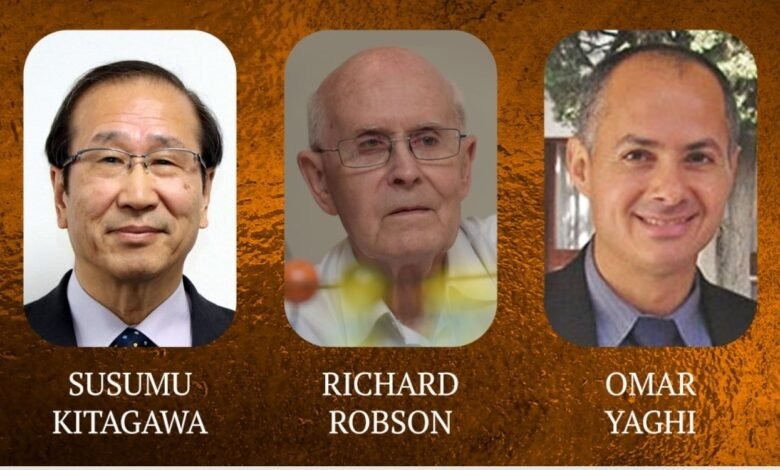The 2025 Nobel Prize in Chemistry has been awarded to Susumu Kitagawa, Richard Robson, and Omar M. Yaghi for their groundbreaking research on metal-organic frameworks (MOFs). Their work on molecular structures could help tackle major environmental challenges, including capturing carbon dioxide to combat climate change and reducing plastic pollution.

Breakthrough in Molecular Architecture
The Nobel committee described the scientists’ research as “molecular architecture.” The trio developed methods to build structures with large spaces between molecules, allowing gases and other chemicals to flow through. These structures, known as MOFs, act like tiny rooms that can store or capture harmful substances, including carbon dioxide and persistent chemicals called PFAS.
While currently used on a small scale, companies are exploring whether MOFs can be mass-produced for broader environmental applications. Potential uses include breaking down harmful gases and capturing greenhouse gases from factories and power stations.
Early Work and Innovation
The scientists began their independent research in the 1970s and 1980s. Professor Robson even used a hands-on approach in his lab, attaching wooden balls and rods to represent atoms and bonds, helping visualize complex molecular structures.
Their discoveries have laid the foundation for one of the fastest-growing areas of modern chemistry, according to Professor Sheila Rowan, vice-president of the Royal Society.

Personal Journeys
- Professor Susumu Kitagawa works at Kyoto University in Japan and was inspired by the principle of “the usefulness of useless,” reflecting a philosophy that even seemingly unhelpful things can become valuable.
- Professor Richard Robson is based at the University of Melbourne in Australia and contributed critical experimental methods.
- Professor Omar M. Yaghi teaches at the University of California, Berkeley. Born in Amman, Jordan, he grew up in modest conditions without electricity or running water, and his fascination with molecular structures began at school.
2025 Nobel Prize in Physiology or Medicine Awarded for Immune Regulation Discoveries
Recognizing Chemistry’s Role in Solving Global Problems
The Nobel Prize highlights the importance of chemistry in addressing pressing challenges, including environmental protection, clean energy, and sustainability. According to experts, such awards underscore how fundamental research can lead to solutions for some of the planet’s toughest problems.
The three laureates will share 11 million Swedish kronor (£872,000) in prize money.

About the Nobel Prize Week
The Chemistry Nobel is the third science prize awarded this week. Earlier, the Physics Nobel went to scientists who advanced quantum mechanics for quantum computing, and the Medicine Nobel was awarded for discoveries on how the immune system combats infections.
